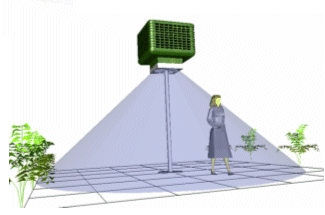
Commercial cooling
Industrial cooling
Portable industrial cooling
Mobile cooling
Evaporative Cooling Installation MethodsThere are two principles of installation: External and Internal External installation: The units are fixed to the outside of a building and the evaporative cooler acts as an inlet fan blowing cooled air through a plenum chamber or a ducted system into the building. It is normally matched with an extract system to give both the required ventilation rate and provide a positive or negative pressure to the building
|
|
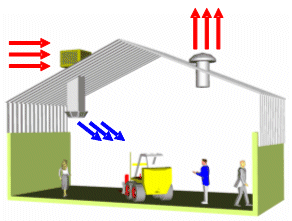 |
External Installation – Down Discharge
The majority of coolers are installed in this way. The extract would typically be 80% of the total cooler capacity. |
| External Installation - Side discharge
This installation is often used where roof access if difficult. |
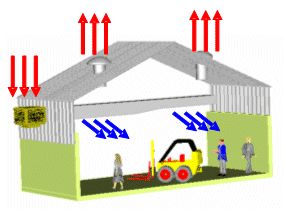 |
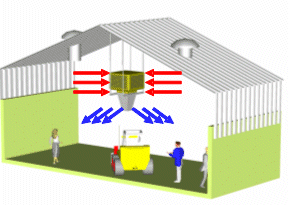 |
Where ventilation exists an internal unit can be suspended from the building structure. Air can then be directed for spot cooling or diffused as part of a larger scheme. |
| The ECP 16000 is designed to be supported from a plain square duct with nominal external dimensions 645mm x 645mm. Note that due to the variation in the moulding of plastics there may be some variation in these dimensions – the final duct must be manufactured to fit the cooler. |
|
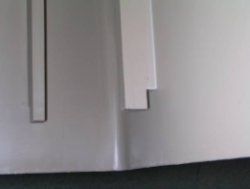 |
There are location points for the cooler to sit on the duct. When the cooler sits on a level duct these points ensure the cooler is level. The cooler must be installed on a level to ensure safe and efficient operations. The duct enters the cooler 30mm. |
A typical roof mounted installation to a plenum chamber is shown. Checks must be made that the roof structure can support the full operating weight of the system plus the ductwork and plenum chamber. The cooler must be mounted sufficiently high so that the drain connection can be made. |
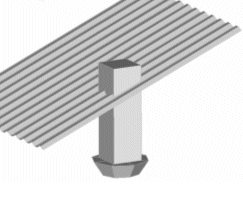 |
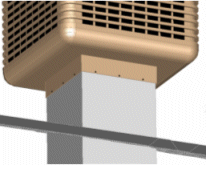 |
The cooler is then fixed to the ductwork using fixings appropriate for the duct material. It is recommended than a minimum of 3 fixings are made on each side. Appropriate weather proofing should be made according to the roof structure and local weather conditions |
| Installations can provide either complete coverage or spot cooling. In energy intensive applications it is normal to cool the corridors between the machines to cool the people. The heat from the machines then rises naturally allowing it to be exhausted. | |
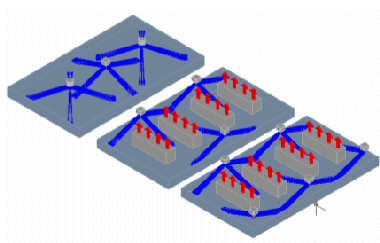 |
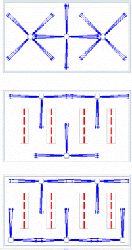 |
Natural openings can be used to provide the outlet for the hot air. 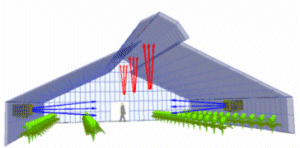 |
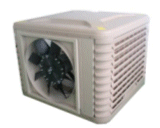 Side discharge cooler can be used where roofs are fragile or access difficult |
ACHIEVE UP TO 35 KW of COOLING for 1KW OF ELECTRICITY USED
